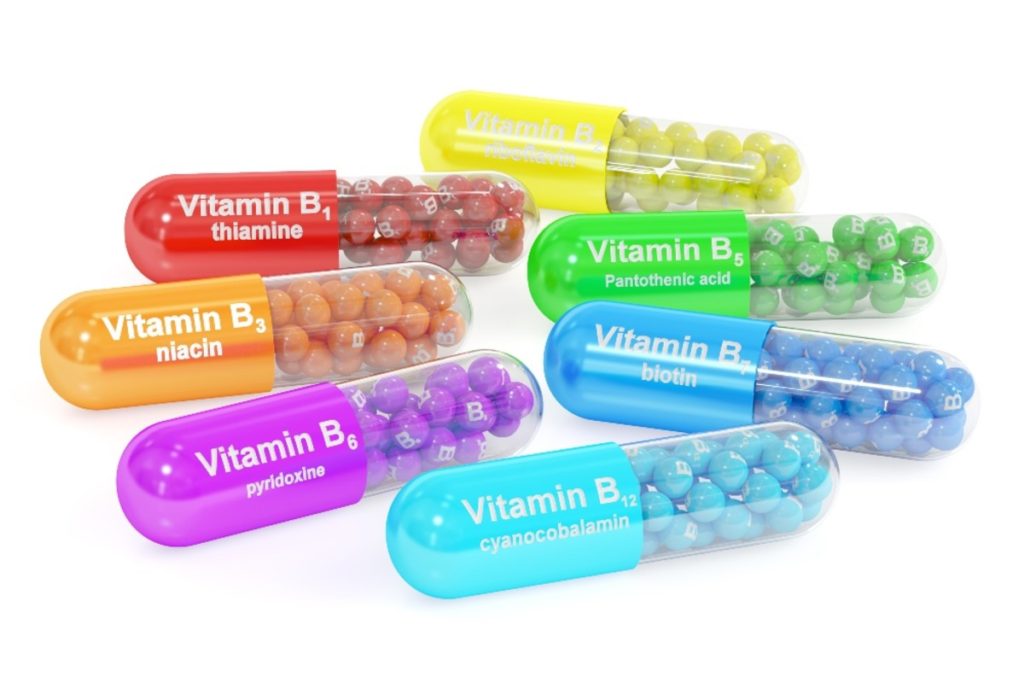There are eight B Vitamins including thiamine (B1), riboflavin (B2), niacin (B3), pantothenic acid (B5), pyridoxine (B6), biotin (B7), folate (B9), and cobalamin (B12). B Vitamins are involved in many physiological processes including metabolism and energy production.
Metabolism is a term that is used to describe all chemical reactions involved in maintaining the living state of the cells and the organism. Metabolism can be conveniently divided into two categories:
Catabolism – the breakdown of molecules to obtain energy
Anabolism – the synthesis of all compounds needed by the cells
Metabolism is closely linked to nutrition and the availability of nutrients. B Vitamins are critical cofactors (assistants) in metabolism. B Vitamins play a vital role in the catabolic process to breakdown food into energy throughout your body. B Vitamins are essential for metabolizing carbohydrates, proteins and fats.
B Vitamin deficiency can disrupt your body’s ability to have a healthy metabolism. B Vitamins also help power your energy production cycle to provide you with immediate energy needs. During this cycle B Vitamins are essential co-factors that help produce what is known as ATP and is used for energy demand in all cells throughout your body. B Vitamins are used by every cell in your body and are a great supplement to add to your daily routine to support healthy metabolism and energy levels! But, there’s something to keep in mind when selecting a B vitamin supplement.
B Vitamin supplements are available in two different forms — their active form and their inactive form. The active form is already bio-available, meaning the vitamins are ready to be used by your body immediately. If it is inactive, the B Vitamin needs to go through the liver to be converted (or “methylated”) into its active form before your body can use it. Unfortunately, this process can be timely, require other factors and result in the inactive vitamins being eliminated from the body before they can be used.
Because B Vitamins are water soluble, which means they are easily eliminated from your body, you need a daily intake of these vitamins. Everyone will eliminate some of the B vitamin supplements causing your urine to look a bright yellow. Certain medications, including birth control pills, can affect the absorption of nutrients including B vitamins, so supplementation may be required. B Vitamins are your metabolism’s friend and helps provide energy for zest and vitality.
